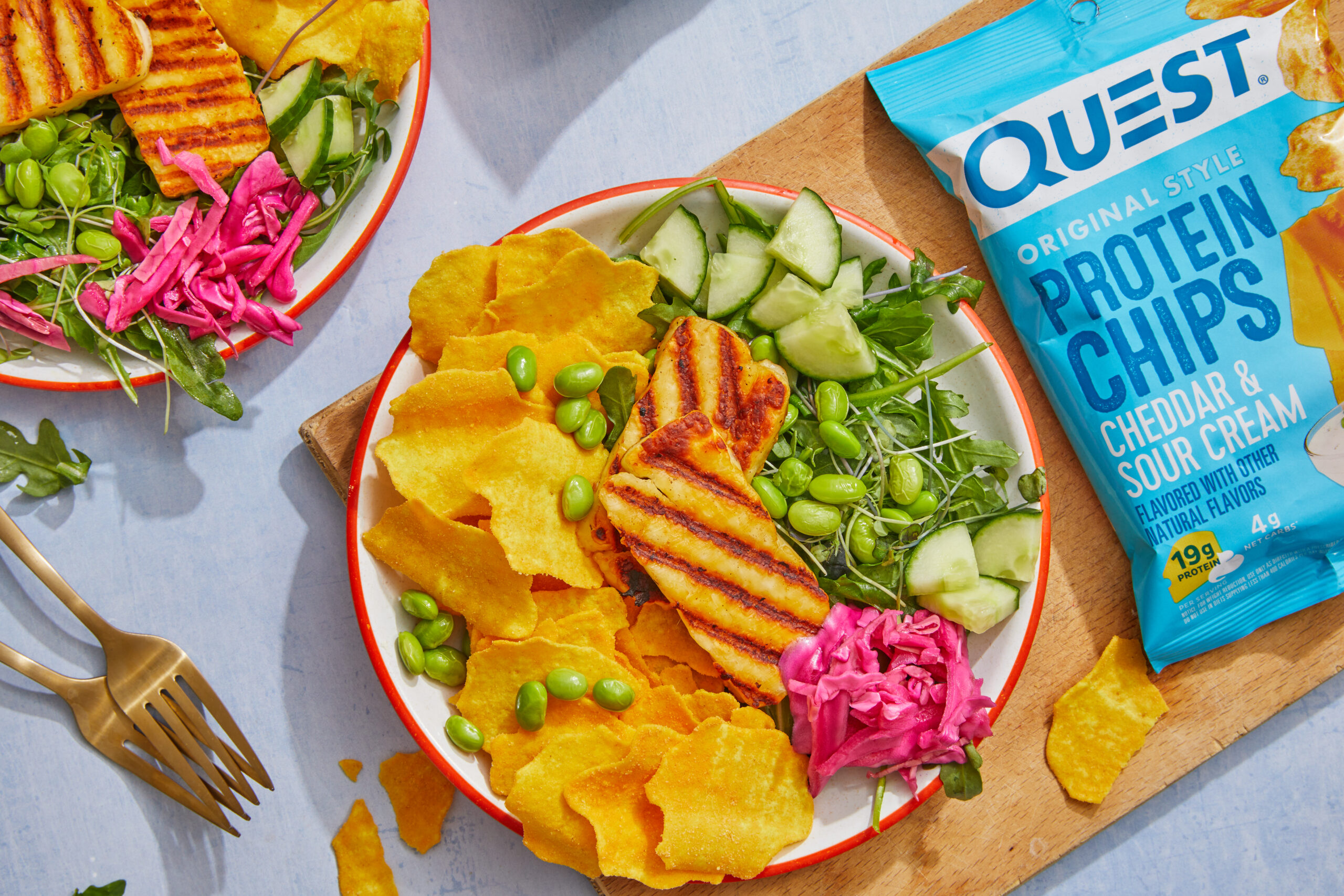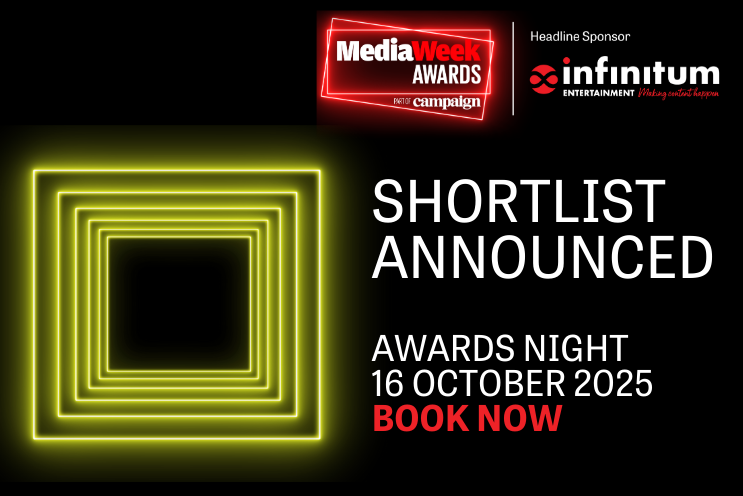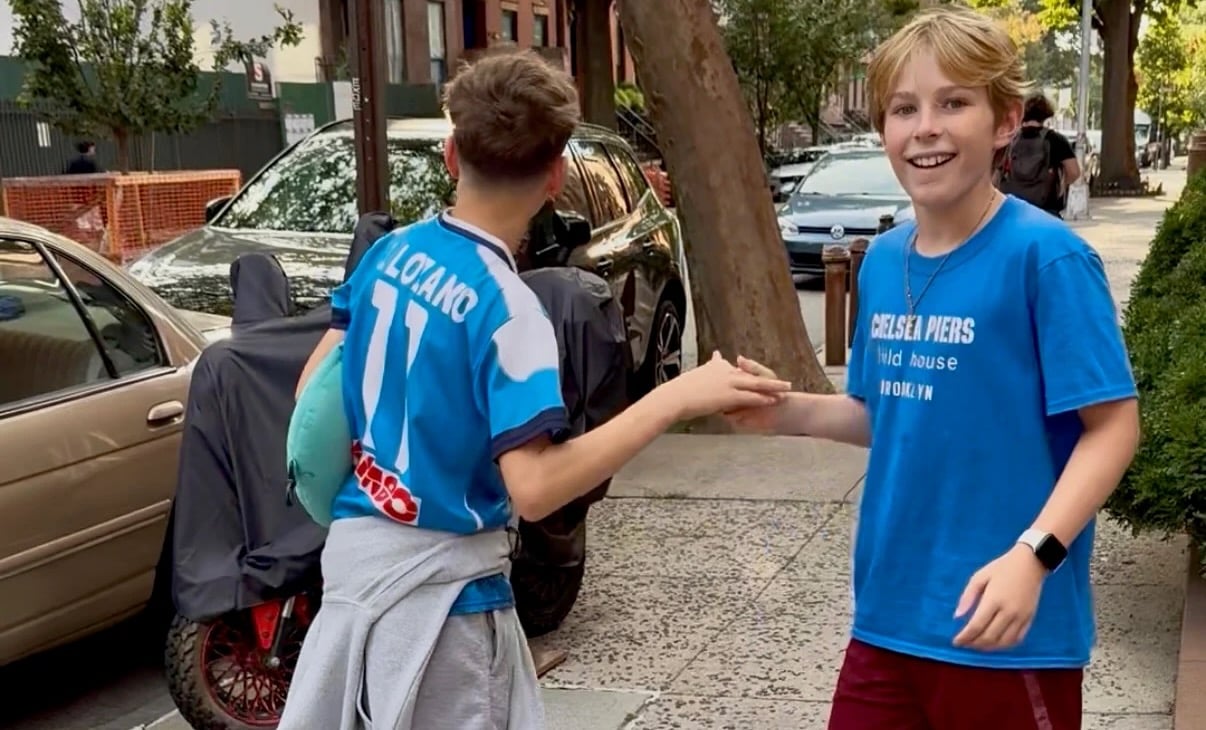Advertising Week Daily: Triller's creator ambitions, United discusses vaccines, and more
Welcome to Day 1 of Ad Age’s special edition Advertising Week newsletter. Whether you’re attending in-person at Hudson Yards or from the comfort of your home office, many marketers will likely be glad to see the return of Advertising...


Welcome to Day 1 of Ad Age’s special edition Advertising Week newsletter.
Whether you’re attending in-person at Hudson Yards or from the comfort of your home office, many marketers will likely be glad to see the return of Advertising Week New York. One of the biggest ad industry events has returned, at least partially in-person, after a whirlwind 18 months of COVID-19 cancellations, logistical nightmares and virtual-only presentations. And from a new socially-distanced venue to complimentary fries at Shake Shack (more on that later), the annual event has made its almost-post-pandemic comeback.
With more than a 100 panels over the course of this week spanning everything from NFTs to diversity, equity and inclusion, Ad Age will bring you the biggest takeaways in our special edition newsletter. Here’s our recap of day one.
Glimmer of hope
AWNY is one of the first major industry events to return in-person, with COVID-19 putting the kibosh on other bullish plans for live or “hybrid” gatherings that were announced earlier in 2021. Monday started off slowly, with just a dozen or so people attending some panels at Hudson Yards. But by lunchtime crowds picked up with as many as 300 people attending an afternoon session.
Those in attendance noted this year’s smaller, more intimate stages (the largest of which seats 350 guests). As it relates to COVID protocols, Advertising Week requires everyone attending sessions to show proof of vaccination, but enforcement on face masks was lax except in a handful of panels where they’re required for entry.
Texting with creators
Social media has made celebrities and content creators more accessible than at any other time in history, but TikTok competitor Triller is looking to take that notion to a whole new level. Triller CEO Mahi de Silva, who stepped into the top role at the creator-focused start-up app this year, announced on Monday a new service called Cliqz, a messaging platform that gives internet stars a way to directly contact fans. “Creators should own their audiences, not the platforms,” de Silva said, name-dropping the D’Amelio family as early adopters of the SMS-based communication tool.
Triller is trying to stay relevant at a time when there are many options in the creator space, including Chinese-owned TikTok, Instagram, Snapchat and others, positioning itself as a home base for creators to manage their fans across those channels. Triller claims to be getting brands on board with the program and is apparently getting “huge commitments” from beauty brands, de Silva said.
—Garett Sloane
QR codes go mainstream
Marketers have been eagerly waiting for QR codes to become commonplace and it seems the pandemic has created a perfect storm for adoption. For American Express, it’s created a “new opportunity to get an easier customer experience into a prospect’s hands, and unleash some data for us,” David Paltiel, VP of digital commerce, said during a Monday morning panel.
American Express recently launched a campaign in local markets that included contextualized placements on channels such as TV, radio and out-of-home—yet measurement techniques have changed, Paltiel said. “We tried to bring digital elements like QR codes to media investments that have traditionally been out of reach because we didn’t feel we could track impact,” he added.
—Adrianne Pasquarelli
Snapchat has taken over Shake Shack’s Hudson Yards restaurant this week with an augmented reality shopping experience designed to highlight its lenses and other technology. Open daily until 9 p.m. and running through Oct. 21, the “Snap Shack” collaboration features a series of QR-like Snapcodes tied to an AR store stocked with limited edition Snap Shack merchandise, Ad Age’s Erika Wheless wrote. Read more about the activation (that offers AWNY attendees free french fries) here.
Vaccine requirements help in more ways than one
Earlier this year, United Airlines was one of several brands that announced mandatory COVID-19 vaccinations for all of their employees, while competitors such as Delta Air Lines and American Airlines instead encouraged vaccinations by doling out perks, like extra days off. It looks like the move to require vaccines was beneficial in more ways than one.
“The amazing thing to come out of this is what it’s done for United out in the world,” Luc Bondar, VP of marketing and loyalty and president of MileagePlus at United, said during a panel yesterday. Bondar made note that health-conscious customers and businesses have reached out to say, “‘We’ve been flying the competition for 20 years but you guys made the right choice and we want to move our business to you.’” He added that positioning United as a brand “that stands as a force for good” has resulted in more brand awareness and positive reception. His remarks are in line with findings from a recent Ad Age-Harris Poll that found businesses that enforce employee vaccinations could see a sales lift, with more than half of the consumers polled reporting that they’re more likely to shop at stores that require shots.
—A.P.
Future of CTV is programmatic
Three top marketers from Volkswagen of America, Anheuser-Busch InBev and Colgate-Palmolive all agreed during an Advertising Week panel that the majority of TV ad spending will occur programmatically via connected TV within three years, echoing sentiments about CTV and streaming that defined many of this summer’s upfront negotiations.
During the Monday session, the marketing executives justified their aggressive push into the CTV space, citing the statistic that nearly 50% of American households are now cord-cutters or “cord-nevers,” meaning they’ve never had a traditional cable or broadcast setup at home. “The savings can be real and we wouldn’t have reached those folks otherwise,” said Kimberley Gardiner, Volkswagen’s senior VP of marketing, touting the benefits of shifting a portion of a recent campaign to CTV. She also acknowledged that linear versus CTV is no longer an “either-or decision” as a rising number of households have both.
Read more about the rise of connected TV here.
Power of college athletes
While some brands might still be hesitant to strike deals with college sports stars, multicultural advertising agency UWG is going all in, announcing a partnership with Student Athlete NIL to create The NILE (an acronym for “Name, Image, Likeness, Empowerment”), a new sports consulting arm focused on mentorship and support for Black student athletes. “We have to uplift our future, and we think student athletes are that future, but need more support,” UWG’s CEO Monique Nelson said on Monday.
The two sports that are often the biggest revenue generators on college campuses are football and basketball, with as much as 80% of student athletes identifying as minorities, “and many won’t go on to play professionally,” said Jason Belzer, CEO and co-founder of Student Athlete NIL. He also talked about how NIL is starting to elevate once-local names, pointing to the likes of basketball player Paige Bueckers, and gymnasts Suni Lee and Olivia Dunne, all three of whom have millions of social media followers—far more than accounts of the universities they attend.
—Erika Wheless
Difficult decisions
“Sometimes you have to look somebody in the eye and tell them we don’t think this is the right fit,” Paul Venables, founder and chairman of agency Venables Bell + Partner said during a panel yesterday about the decision to bow out of Audi’s creative agency review, giving up the keys to the account it has held for nearly 14 years. “We have recently made a difficult gut check decision and informed our friends at Audi that we will not participate in the review,” Venables said, adding that “the pendulum, in this case, has swung to centralization,” which the agency does not believe is “the right approach for that brand in this market at this time, and it’s not necessarily what we are good at.”
But Venables didn’t rule out the possibility of VB+P working with the auto maker ever again. He also announced that in celebration of the agency’s 20th anniversary, it would be offering its agency-of-record services for $20 to any business that wants to apply via an application portal on their website. “We don’t know what we’re going to get. We could get a small tech start-up or we could get a hot dog cart guy at Union Square,” he joked.
—Brian Bonilla
Wondering what you should attend today?
Ad Age has scoured Tuesday’s agenda to recommend a handful of sessions you won’t want to miss:
“Making Progress Permanent: Delivering on D&I Objectives” at 9:45 a.m. This virtual panel led by women of color will discuss how diversity initiatives and equity commitments can avoid losing the spotlight to stay top-of-mind in the months and years to come. “Cutting Through the Noise with Branded Podcasts” at 11 a.m. Featuring speakers from HBO, Vox Media, SXM Media and more, this virtual session will cover all things podcast—most importantly, how to stand out in an increasingly crowded audio space. “Mobilizing Brands Through an Emerging Esport” at 12:30 p.m. PC and console games have dominated much of the recent interest around esports, but this hybrid live-virtual panel invites gaming leaders to analyze why mobile gaming shouldn’t be overlooked. “The Shift to CTV: Your Audience is Waiting” at 2 p.m. This hybrid live-virtual session invites executives from Samsung Ads, Integral Ad Science and Publica to address how budgets must shift with eyeballs as more cord-cutting consumers look towards connected TV.
Ethan Jakob Craft is a general assignment reporter who divides his time between Toronto and New York City, writing about marketing as it intersects with pop culture, design, media and more. He has covered the advertising industry in both the U.S. and Canada since joining Ad Age in 2019 and can be found on Twitter at @ethanjakobcraft.

 Astrong
Astrong 
































